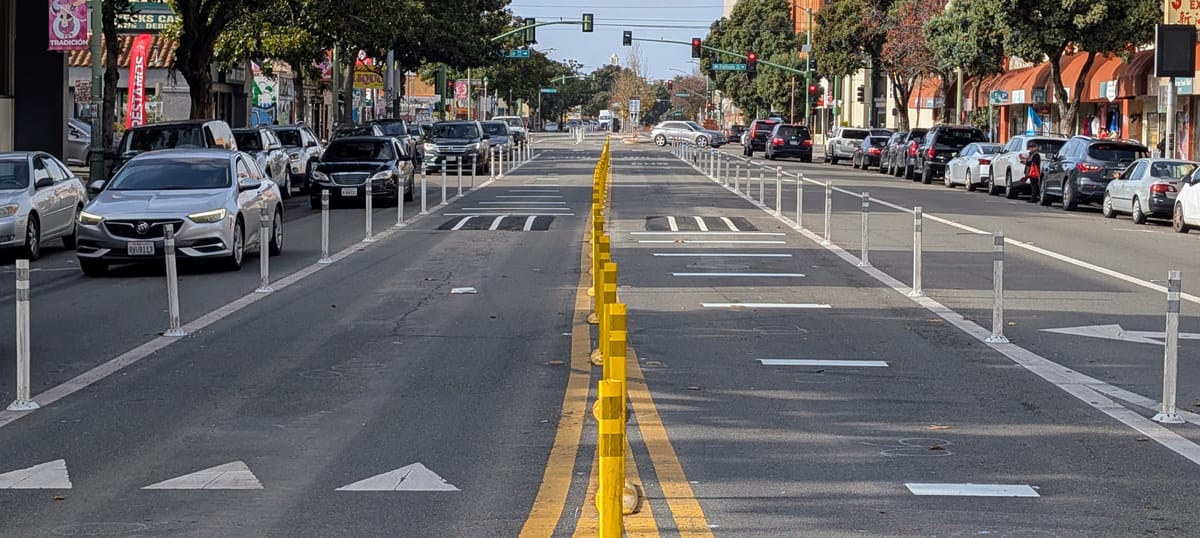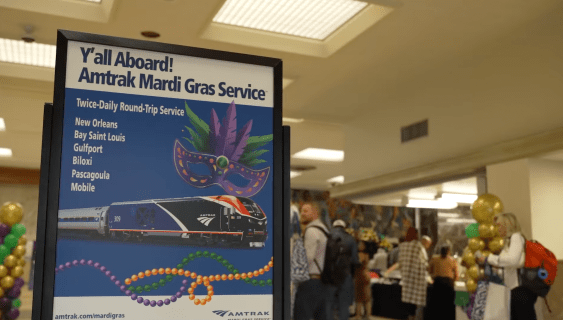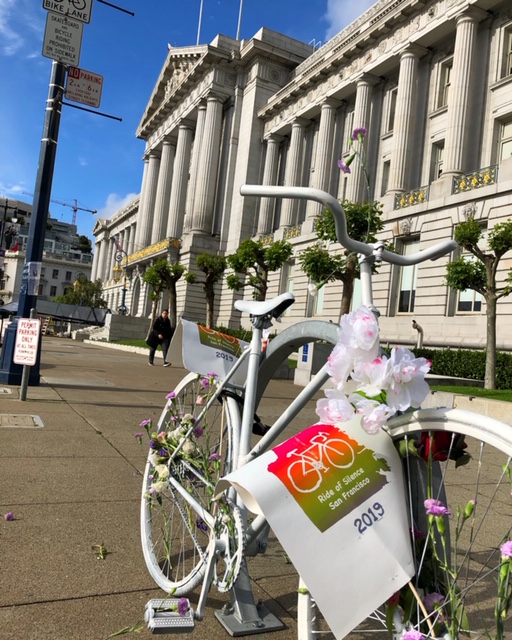 Image: BART
Image: BARTIn a stern letter to BART [PDF], Federal Transit Association (FTA) Administrator Peter Rogoff informed the agency that it would not be able to develop a suitable action plan by March 5th to comply with equity and race requirements for the $70 million in stimulus funds for the Oakland Airport Connector (OAC), a move that may kill the project.
"Given the fact that the initial Title VI complaint against BART was
well founded, I am not in a position to award the ARRA funds to BART
while the agency remains out of compliance," wrote Rogoff.
In his letter, Rogoff said he was sure the project opponents that filed the original complaint with the FTA would proceed with further lawsuits, jeopardizing the tight timeline on stimulus funds. He advised BART and MTC to reallocate the money or the region would risk losing the funds altogether.
"The
likelihood of protracted litigation with the parties that made the
initial complaint is extremely high," wrote Rogoff. "Given this situation, and the fact
that we are now only 3 weeks away from the March 5 deadline, I must
bring these discussions to a close so that we can work together to
ensure that the ARRA funds can create and preserve jobs in the Bay Area."
As a contingency plan, the Metropolitan Transportation Commission
(MTC), which oversees transportation planning in the Bay Area, had
planned to meet on February 17th to decide whether to reprogram the $70
million if BART did not meet its obligations. The MTC will likely move the $70 million to the region's transit agencies by
pre-established funding formulas, rather than risk losing the money outright.
OAC opponents were delighted with the news.
"We think this is a victory for BART riders, transit workers and the community of East Oakland," said Wynn Hauser, spokesperson for Public Advocates, the legal team that filed the FTA complaint. "These are serious civil rights violations and we applaud FTA for following through on not only the letter but the spirit of Title IV. They are not saying you have to pay lip service, but you have to do this work."
"Now low income people and communities of color will be able to shape the project that they were originally denied so they can share in the benefits," he added.
John Knox White of TransForm, a transit and smart growth advocacy organization, said the decision vindicates the position TransForm and its allies have taken for more than a year. "Through this, BART has repeatedly tried to keep the public out of this process," he said.
White also pointed to the benefit the $70 million will have to maintain service and avoid fare increases at transit agencies across the Bay Area, including Muni, BART, and AC Transit, which all have budget deficits.
"FTA's decision allows MTC to put this money to transit agencies, including BART, who desperately needs it now," said White. "It's a win for everybody."
As for how this affects Muni's budget concerns, spokesperson Judson True said: "It's too
early to say exactly what impact this will have on our operating
budget." But, he noted, "We've done the work required to be ready to receive any funding that
MTC directs our way. Since the stimulus bill first passed, we've been
prepared for this eventuality."
According to True, of the $17.5 million Muni would receive, $4.3 million will go to preventive maintenance, which is essentially operating expenses. The remainder would be programmed toward light rail vehicle rehab.
Neither BART nor MTC were immediately available for comment.
More from FTA Administrator Rogoff's letter:
Since my letter of January 15, FTA staff and BART have worked diligently but unsuccessfully on the development of a corrective action plan that might be acceptable. I am required to now inform you that your plan is rejected. I ask that you immediately get in contact with Region IX Administrator Leslie Rogers for the purpose of pursuing alternative projects for the Bay area that can be obligated prior to the March 5 deadline.
I am required to reject your plan for the following reasons. Based on the timelines submitted by BART, there is no way the agency can come into full compliance with Title VI by September 30, 2010. The requirements of ARRA dictate that any funds not disbursed by September 30, 2010, must be lapsed back to the Treasury. And since I cannot allow BART to draw any funds for the OAC project prior to coming into full compliance, it is clear that pursuit of the OAC project would result in the funds either being reallocated out of the Bay area or lapsed. Both scenarios are unacceptable to me as I am sure they are to you. Let me say that, based on FTA's experience in other cities, BART is being realistic in admitting that the process of coming into full compliance will take considerably longer than the 8+ months that remain before the September 30 deadline. I appreciate and respect your honesty in this regard.
Given the fact that the initial Title VI complaint against BART was well founded, I am not in a position to award the ARRA funds to BART while the agency remains out of compliance. Moreover, it is clear that, if FTA were to pursue such a course, the likelihood of protracted litigation with the parties that made the initial complaint is extremely high. Given this situation, and the fact that we are now only 3 weeks away from the March 5 deadline, I must bring these discussions to a close so that we can work together to ensure that the ARRA funds can create and preserve jobs in the Bay area.
The efforts of the last few weeks have not been wasted. Wholly separate from the fate of the OAC project, it is imperative that BART, as a recipient of FTA funds, come fully into compliance with Title VI as soon as possible. The plans developed between our staffs over the last few weeks lay the groundwork for BART to achieve that important goal.




